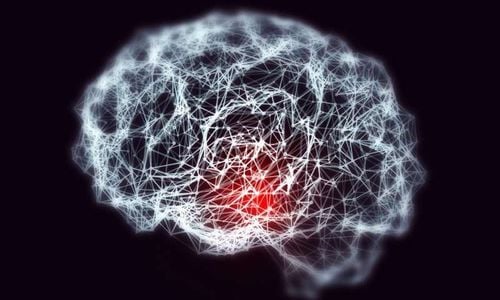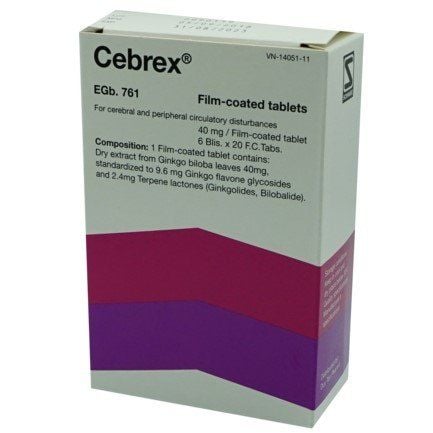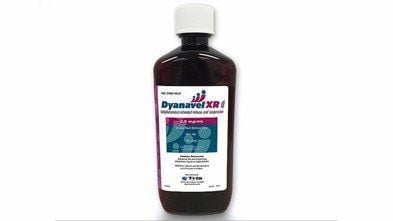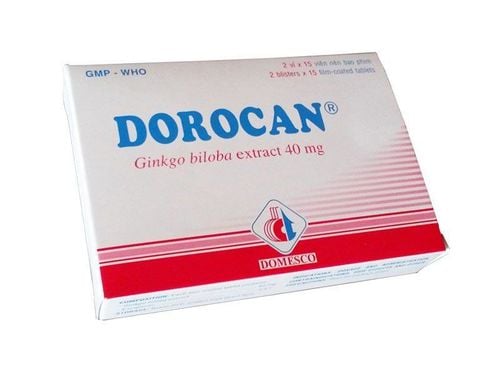This is an automatically translated article.
Brain atrophy is one of the common diseases of old age. The disease is often accompanied by memory loss and greatly affects the patient's daily life.
1. What is brain atrophy?
The phenomenon of loss of brain cells or brain cells that are no longer connected is called brain atrophy. People with the disease often have brain damage and affect cognitive abilities.
In brain atrophy is divided into 2 main types: focal brain atrophy, total brain atrophy. In which, focal brain atrophy occurs in specific brain regions, total brain atrophy occurs in all brain regions.
Some causes leading to brain atrophy include:
Trauma: Is a phenomenon of prolonged damage to the brain area due to traffic accidents, falls and impacts on the brain area, stroke, encephalitis, neurological disease, HIV .... Infection : Is a phenomenon in the brain that is severely damaged by bacterial and viral infections. Some other diseases: Brain atrophy can be caused by effects or complications of diseases such as multiple sclerosis, cerebral palsy, Alzheimer's disease, ...
2. What is memory impairment?
Memory impairment is a phenomenon in which the brain reduces its cognitive abilities: language, thinking, emotion, creativity.... In addition, memory impairment also causes patients to lose their memory ability. brain. In memory there is no longer the ability to store and encode to recall the information that has been loaded.
Some studies suggest that nerve cell degeneration or dysfunction of nerve cells is the cause of memory impairment. Specific causes:
Lack of nutrients to the brain affects the production of neurotransmitters; As people age, the brain and neural networks degenerate; Using alcohol, beer, tobacco and other stimulants; Some other diseases: Alzheimer's, dementia, cerebrovascular accident, schizophrenia,... The phenomenon of long-term stress, depression, or being under pressure; Complications of the use of medications (depression, insomnia, paracetamol, dementia, Parkinson's, ..)

Hiện tượng mất các tế bào não hoặc các tế bào não không còn sự kết nối được gọi là teo não
3. Is brain atrophy dangerous?
People with cerebral atrophy often have damage to one or more brain regions. The severity or mildness of brain atrophy depends on the location that has been damaged. According to the American Academy of Neurology, people with brain atrophy may experience symptoms such as:
Seizures: This phenomenon usually occurs suddenly due to abnormal electrical activity in the brain. Symptoms depend on the area of the brain affected. Epilepsy often has the following typical symptoms:
The patient changes behavior suddenly, convulsions; drooling or foaming at the mouth occurs; The patient is no longer conscious of his or her behavior; There may be teeth grinding, snorting. Aphasia syndrome: This is a syndrome related to the patient's communication, the patient's ability to hear and understand is impaired. According to recent studies, there are 8 types of aphasia distributed in different regions. If there is damage to the brain area, there will be a type of aphasia due to the presence of a certain area. The syndrome of aphasia is also divided into different degrees of severity.
Dementia : Dementia is considered a clinical syndrome caused by many causes. People with dementia often have short-term memory, short-term memory, or memory loss in some cognitive areas. Patients with the disease may have reduced motor memory, reduced language, decreased sensory memory and decreased executive function of organs. However, dementia is also considered as a natural degenerative process of the body.
It can be concluded that brain atrophy is a very dangerous disease, especially in the elderly. It not only causes inconvenience in daily life but also entails a variety of diseases for the body.
4. The relationship between brain atrophy and memory decline
Based on the research of the University Hospital of Medicine and Pharmacy in Ho Chi Minh City. HCM from November 2012 to April 2014 showed that all people with dementia experienced brain atrophy and damage to brain cells. From there, it causes memory loss and mostly occurs in the elderly.
From some other studies, it is also suggested that memory loss causes the appearance of free radicals, which are one of the main causes of brain atrophy.
The harmful effect of the appearance of free radicals is to make the myelin fibrosis and this phenomenon also appears in the axon terminals of nerve cells. As a result, the connection between neurons is no longer available and as a result, brain functions are disrupted, causing memory impairment.
To protect health and prevent complications, when detecting symptoms of memory loss, the patient needs to go to the hospital to be examined by a neurologist. Currently, Vinmec International General Hospital is one of the most prestigious medical treatment units for neurological diseases in Vietnam. The Department of Neurology at Vinmec has the function of examining, diagnosing, consulting and treating diseases related to neurological factors, including headaches, vestibular syndrome, cerebellar syndrome, dementia The typical method of the department is to use intravenous and arterial fibrinolytic drugs for stroke cases, along with the combination with paraclinical means such as electroencephalography, electromyography. ST Scan, MRI,...
Neurological examination at Vinmec, customers will be:
Examination by a team of highly qualified and experienced specialists: Medical doctor with Master's degree Doctor to Professor, Doctor, reputable in internal medicine and surgery, highly trained domestically & abroad, such as: Doctor Nguyen Thi Minh Phuong, Doctor Bui Ngoc Phuong Hoa, Doctor Vu Duy Dung ... State-of-the-art equipment, comparable to major hospitals in the world: The most modern operating room in the world; The most modern silent magnetic resonance imaging machine in Southeast Asia; The 16-sequence PET/CT and SPECT/CT systems help in early detection of neurological damage even when there are no symptoms of the disease. Applying the most advanced intensive treatment techniques in the world in the treatment of:
Please dial HOTLINE for more information or register for an appointment HERE. Download MyVinmec app to make appointments faster and to manage your bookings easily.













